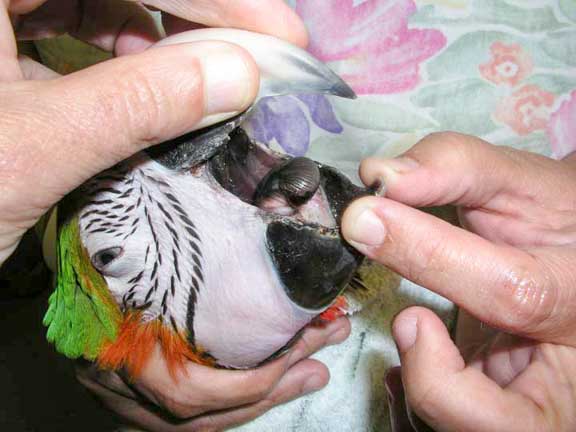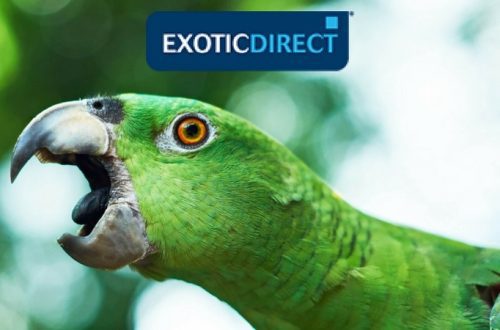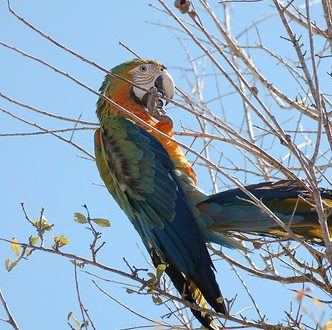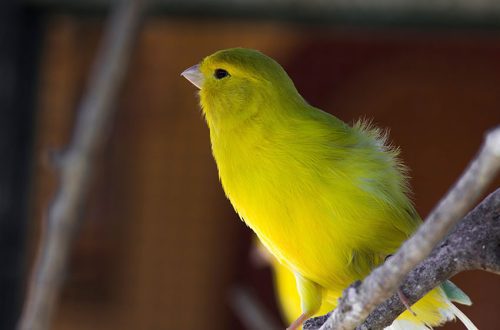
Poisoning in parrots
Poisoning in parrots dangerous, including the fact that at the initial stage they are almost invisible. However, if no action is taken, the parrot may die. Therefore, carefully monitor the behavior and condition of the pet.
Contents
The first signs of poisoning in a parrot
- The parrot is fluffed up, does not eat, almost does not pay attention to what is happening. This is cause for concern.
- Then diarrhea and vomiting appear.
- The parrot becomes weak, stops moving.
- If the intoxication is severe, you will notice convulsions, fever and paralysis.
All this can end in death. Therefore, it is worth contacting a veterinarian at the first sign of malaise.
How to avoid poisoning a parrot
- Carefully inspect the food, preferably with a magnifying glass. If a grain or nut is affected by dark spots, it is probably a mold.
- In a room with parrots, you can not smoke and spray aerosols (deodorants, insecticides, air fresheners, antistatic agents, etc.), use paints, varnish, solvents – this can also cause poisoning.
- If the parrot has the ability to fly around the room, make sure that he does not eat poison for rodents or cockroaches.
- An overdose of vitamins, especially oil ones, can also cause poisoning, so be careful when adding them to food.
Parrot poisoning with nitrites and nitrates
It occurs if the pet “feasted” on pesticides or ate food with a high content of nitrates.
Symptoms:
- Excessive excitement.
- Decreased body temperature.
- Dyspnea.
- Redness of the mucous membrane of the mouth, conjunctiva and earrings.
- Convulsions.
- Salivation.
- Suffocation.
It is necessary to dilute lactic acid with water and give the bird three times a day.
Parrot poisoning with salt
Ordinary table salt can be deadly for your feathered friend, so make sure he doesn’t get to it.
Signs (usually appear after 1 to 2 hours)
- Depressed state.
- Thirst.
- Loss of appetite.
- Rapid breathing.
- Diarrhea.
- Convulsions.
- Paresis, paralysis of the limbs.
Treatment: 10% glucose solution.
Poisoning by poisonous plants or seeds
The following plants are poisonous to birds:
- black medicinal
- hemlock
- spurge marsh
- big celandine
- ranunculus caustic
- hellebore Lobel
- dope ordinary
- lumbago open
- lily of the valley.
In case of any poisoning, you should immediately consult a veterinarian!
First aid – strong sorbents (for example, enteros-gel). It is absolutely impossible to give potassium permanganate to birds! This can burn the esophagus.
See also:
House plants and germinated food for parrots





